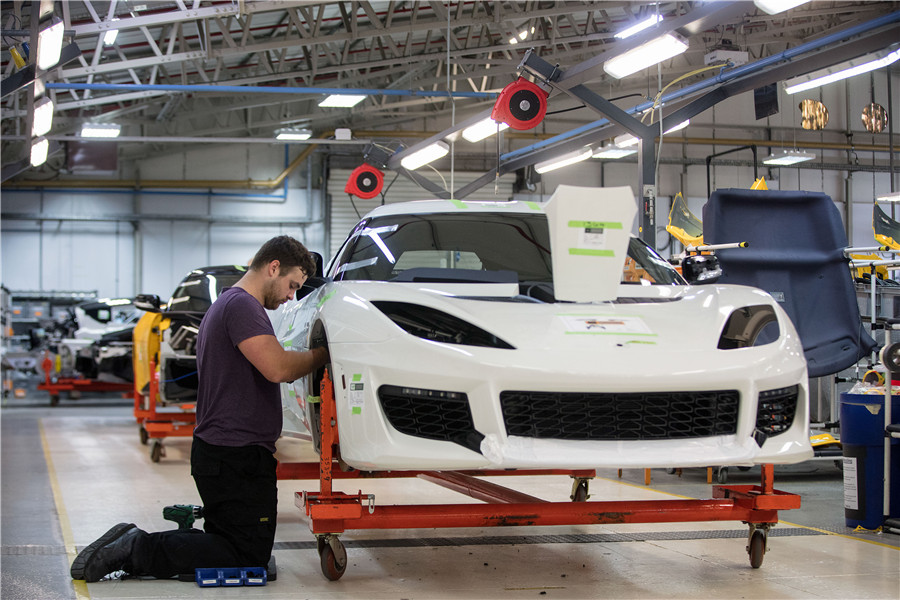Geely to start making Lotus cars in Wuhan

Zhejiang Geely Holding Group will start producing cars under British sports car brand Lotus in China at a 9 billion yuan ($1.3 billion) factory in Wuhan, capital of Central China's Hubei province, according to Reuters, citing company job advertisements and government documents.
It will be the Chinese carmaker's first move to shake up Lotus since its purchase of a 51-percent stake in 2017 from Malaysian carmaker Proton as part of a package deal with its parent company DRB-Hicom. Geely vowed then to "bring it into a new phase of development by expanding and accelerating the rolling out of new products and technologies."
Lotus cars are currently built in the United Kingdom. In a statement to China Daily on Thursday, Geely said: "Lotus Cars is undergoing an exciting resurgence with the backing of Geely, and expanding the brand's manufacturing footprint globally is a key part of the company's strategy. Details on additional locations and models will be confirmed in due course."
The Wuhan Development Zone in Hubei province, where the new Geely factory will be based, said on its website last month that production at the plant would include the carmaker's "Lotus project".
Job advertisements on Geely's website show the automaker is looking to fill at least 20 Wuhan-based roles for the Lotus project.
The planning authority of Hubei province approved Geely's plans for the plant in late December. The factory will be able to manufacture 150,000 cars annually, according to a document posted on the authority's website.
The plant is slated to start construction this year and finish in 2021. It will build all-electric battery cars, electric hybrids as well as combustion engine cars like Lotuses.
Lotus registered its strongest sales since 2011 in 2018 with sales reaching 1,630 units. "Lotus is well placed to capitalize on its success in 2019 with planned expansion in markets such as China and the US," said Geely.
"For Geely, going high-end can help it take more market share," said Alan Kang, a Shanghai-based analyst at LMC Automotive. "Geely needs to do that to better compete with global brands."
Geely launched its premium brand Lynk & Co in 2017 to compete with volume international brands like Volkswagen and Ford, and sales exceeded 120,000 units in 2018, accounting for 8 percent of Geely's total sales.
While it is not clear what portion of the new Wuhan plant would be devoted to the British brand, greater production volumes would be consistent with Geely's stated ambition to grow the market for Lotus by broadening its lineup.
Lotus currently produces models such as the Evora and Elise. James Bond famously drove a Lotus Esprit in 1977's The Spy Who Loved Me, and Lotus once boasted a Formula One team until it was sold to Renault in 2015.
Two sources familiar with the matter told Reuters that Lotus may make luxury sport utility vehicles rather than sports cars during the Wuhan plant's initial phase.
One of the sources said Geely wanted to emulate premium carmakers, whose luxury SUV models were selling well in China.
The share of premium SUVs in China's overall passenger car market grew from 4.07 percent in 2014 to 5.01 percent in 2018, according to data from consultancy JD Power.
Geely's sales soared 20 percent to 1.5 million in 2018, despite the Chinese auto market slipping for the first time since 1990. The carmaker expects its sales in 2019 to stay at the same level as last year's.
The company has made waves in the auto world with its $9 billion purchase of a stake in Mercedes-Benz's parent company Daimler AG in 2018 and its $1.8 billion acquisition of Sweden's Volvo from Ford in 2010.

